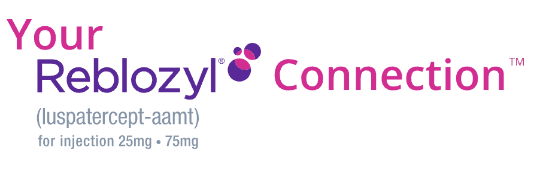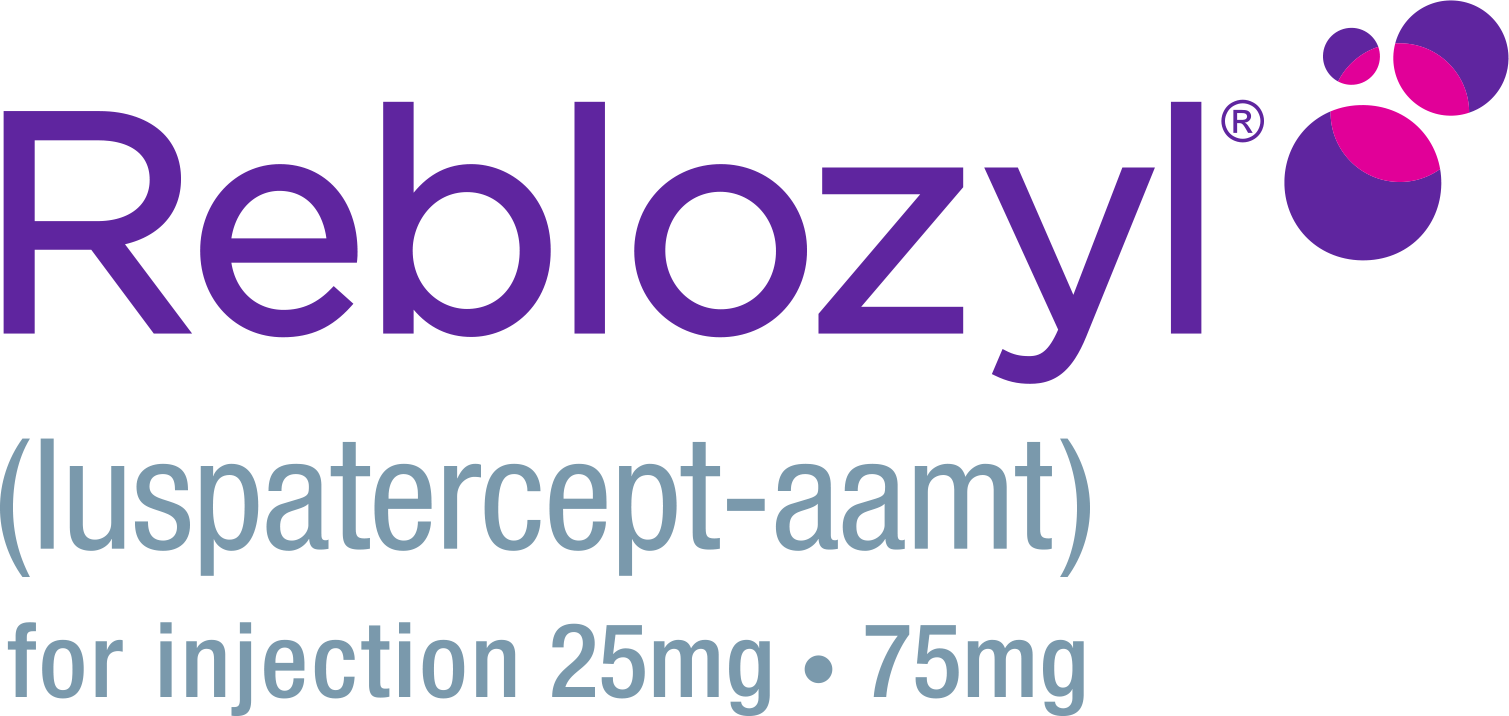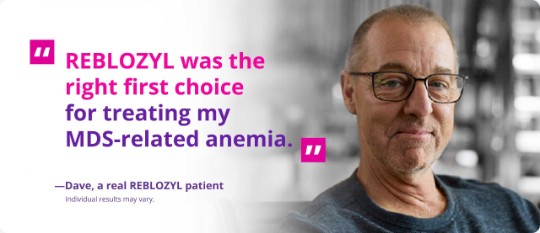
Get helpful tools and resources for your MDS-related anemia
Your REBLOZYL Connection™ is an educational program designed to help you understand treatment with REBLOZYL and provide resources so you can take a more active role in your care.

Start with REBLOZYL first
When taken as the first medicine, REBLOZYL increased hemoglobin (Hgb) levels, while simultaneously eliminating the need for red blood cell transfusions for at least 12 weeks.

Learn about MDS-related anemia and treatments
Get the facts about MDS and anemia, including the different symptoms, causes, and types of low blood cell counts.

Explore REBLOZYL for beta (β) thalassemia (BT)
REBLOZYL is also for adults looking for a different path in managing their BT.




